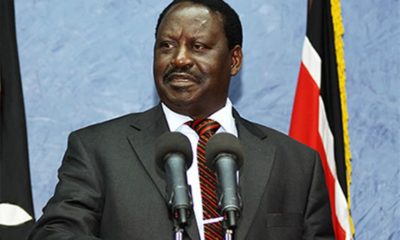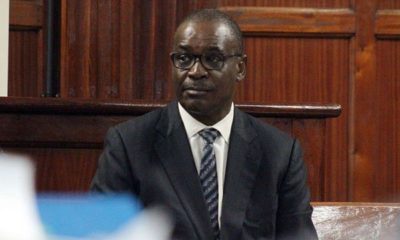
A Kenyan journalist carries a plastic replica of a camera as he participates in a protest along the streets of Nairobi, denounce the new draconian laws
In a normal society, people like Gatunda MP Moses Kuria and his Kabete counterpart Ferdinand Waititu would either be doing time in Kamiti or having sessions with the shrinks of Mathare. Their counterpart, Ababu Namwamba, would probably be a dim figure in shirtsleeves struggling to address the concerns of his poor voters down in Budalang’i.
But in Kenya, these people are superstars that strut the national stage like peacocks, thanks to the thoughtlessness of our news media, which have turned them into household names. In a country whose media is obsessed with hoisting politicians to heights above all other categories, it is not a surprise that the ignominious Kuria/Waititu duo and the politically callow Namwamba, among others, claim a place among Kenya’s famed.
To say that Kenyan media is in love with the politicians is an understatement; the country’s journalists worship the very ground on which politicians walk. Every foul-mouthed ignoramus is worth quoting, as long as they hold political office So important have media made politicians that political events and statements of nil public interest, nay of negative impact, are splashed on front pages of newspapers and covered live on Prime Time TV.
The events of mid-June are a classic example of how media engage in their beloved pastime called political melodrama. As my reader may know, Kuria and Waititu and four others were arrested for hate mongering. Any person of average intelligence would have thought that here was a case of suspected criminals being subjected to due process, with media performing the simple role of reporting and interpreting the news of their arrest and prosecution.

Ababu Namwamba and Counterpart Otuoma
But not so Kenya’s media which, as usual, decided to dramatise the dishonorable affair, in the process creating heroes and heroines out of the suspected criminals. The mere fact that the suspects were politicians was enough for editors to allocate acres of scarce space and important time to the events surrounding their arrest.
Before you get me wrong, let me explain that, at this moment in Kenya’s history, anyone spreading ethnic hate has more potential to hurt the country than a terrorist. Therefore it is quite in order for the media to focus national attention on the threats caused by hate speech. But when media abandon the real story to concentrate on sideshows simply because the personalities involved happen to be politicians, then anyone who understands the role of media in society must be worried. Ditto the comedy that was Namwamba’s abdication of his post as secretary-general of the Orange Democratic Movement (ODM) last month.
Well, a senior official of a big political party calling it quits in controversial circumstances certainly qualifies as significant news, but I doubt that it deserves to occupy the minds of Kenyas for days on end. There is a problem when such issue is overplayed, in the process obfuscating deserving issues and creating heroes and anti-heroes out of personalities that do not possess such qualities. To cut to the chase, Namwamba’s exit from ODM does not mean that the community to which he belongs has changed political direction, as the media would have us believe.
Exciting but meaningless Suppose it was the CEO of, say Kenya Commercial Bank, who had thrown in the towel, citing frustration from some senior quarters, would there have been such media interest as there was following Namwamba’s “grand altercation” with his party and eventual exit? Now that the season of madness is approaching, with the elections just a year away, prepare for exciting but meaningless drama that is Kenya’s political campaign as it will be brought to you by our overzealous, politics-loving journalists.
Figures provided by the same media show that the number of news media consumers has been dwindling by the day. One wonders if media have ever stopped to
ask themselves why readers and viewers are abandoning them in droves, alongside the much-valued advertisements. Well, journalists may defend themselves that politicians belong to the group of the famous. Famous people, they will say, are more interesting than regular people because they are simply better known.
Therefore, more people will read news about them. That may be the case. Indeed, some politicians, like the President, are not only famous but also hold positions that directly affect the lives of the citizens. But the question is, what is it that these “famous” or prominent people are reported doing, or saying. Is what they are reported doing significant to the public? The ideal of journalism – and this is the main reason why media are protected by the Constitution – is that media serve the public interest by putting to task the powerful to explain themselves and justify the decisions they make on behalf of the rest of society.
Ideally, journalists are expected to interrogate the behavior of the powerful on behalf of the people. Unfortunately, most of our journalists hardly do this; most are happy to simply report the theatrics on the political stage. Since Kenyan politics usually has little in terms of news value, reporters tend to focus on the conflicts and controversies, the schemes and struggles within it to make it look exciting and dramatic. This is how the likes of Kuria find themselves on page one of national newspapers.
Deliberate ploy to divert attention Journalist ought to explore and cover issues that most concern their readers and listeners, not merely relaying the drama at rallies and useless sound bites from press conferences. Some observers think that the focus by media on the frivolous and on the dramatics is a deliberate design by the middle class owners of media and the editors to divert attention from the real issues affecting society. Like religion, media can be used to intoxicate people. This is not a far-fetched accusation against a media that has, in the past, been guilty of both the sin of sensationalism and that of self-censorship, sins that have had negative implications for both the journalism and the democratic process in Kenya.
In the run-up to the 2007 election, some media were accused of sensational reporting, and contributing to the post-election conflict that followed those disputed elections. And ashamed of their contribution to the conflict, media in 2013 decided to go the way of self-censorship by downplaying potentially controversial election stories and denying Kenyans important information on the elections, also disputed. Now, with 2017 election just around the corner, media are not sure of themselves. This is why, perhaps, they are now mistaking shadows for the real things.
Adopted from Nairobi Law Monthly
Kenya Insights allows guest blogging, if you want to be published on Kenya’s most authoritative and accurate blog, have an expose, news TIPS, story angles, human interest stories, drop us an email on [email protected] or via Telegram

 Investigations2 weeks ago
Investigations2 weeks ago
 Business2 days ago
Business2 days ago
 Business1 week ago
Business1 week ago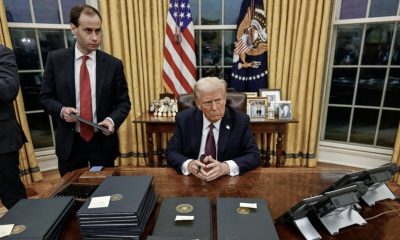
 Americas2 weeks ago
Americas2 weeks ago
 News2 weeks ago
News2 weeks ago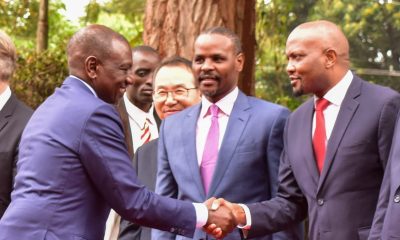
 Politics1 week ago
Politics1 week ago
 Business2 days ago
Business2 days ago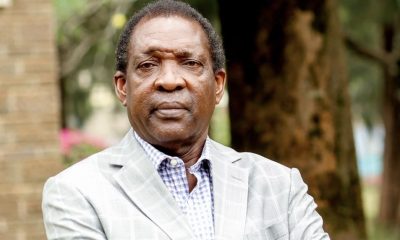
 Business1 week ago
Business1 week ago







